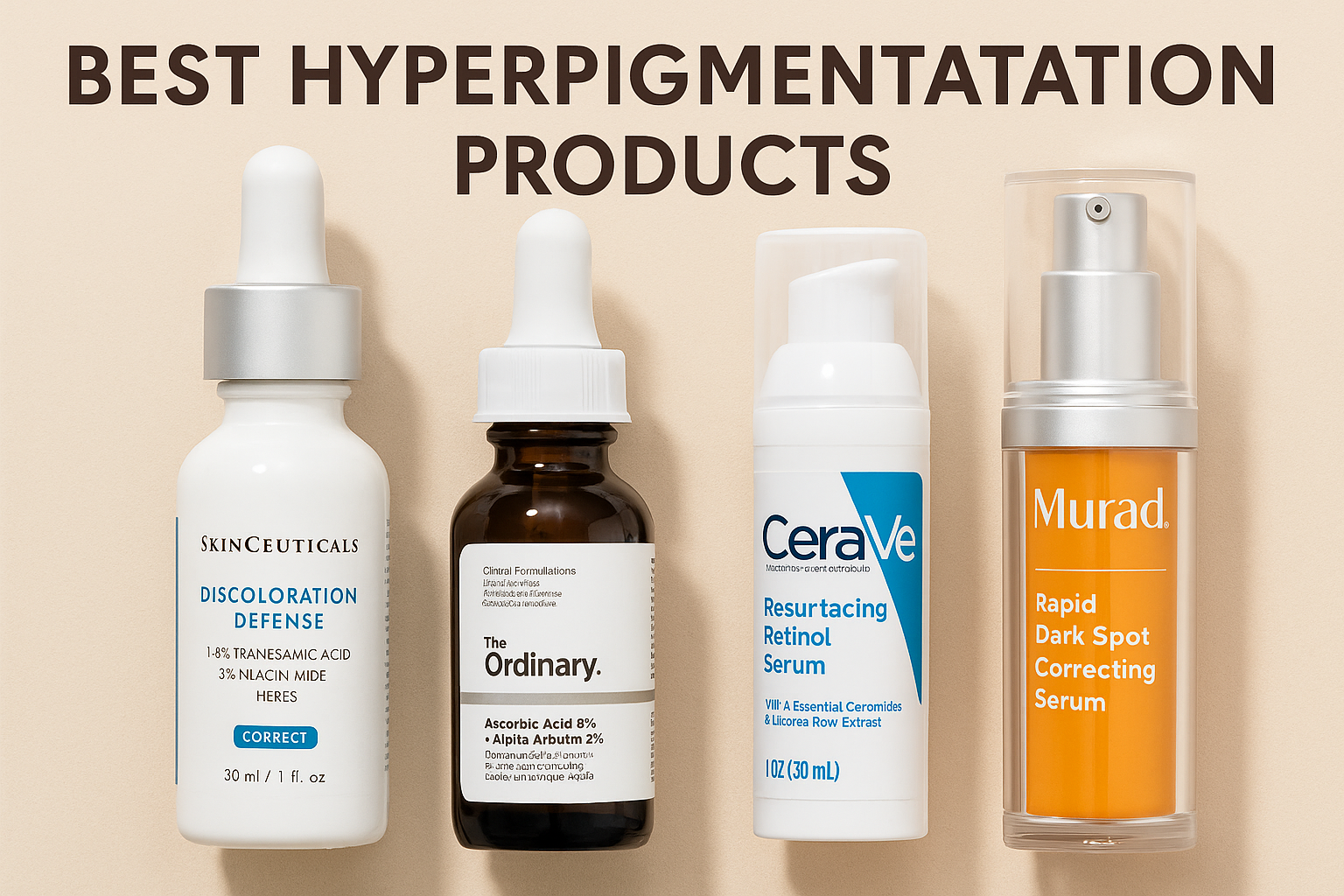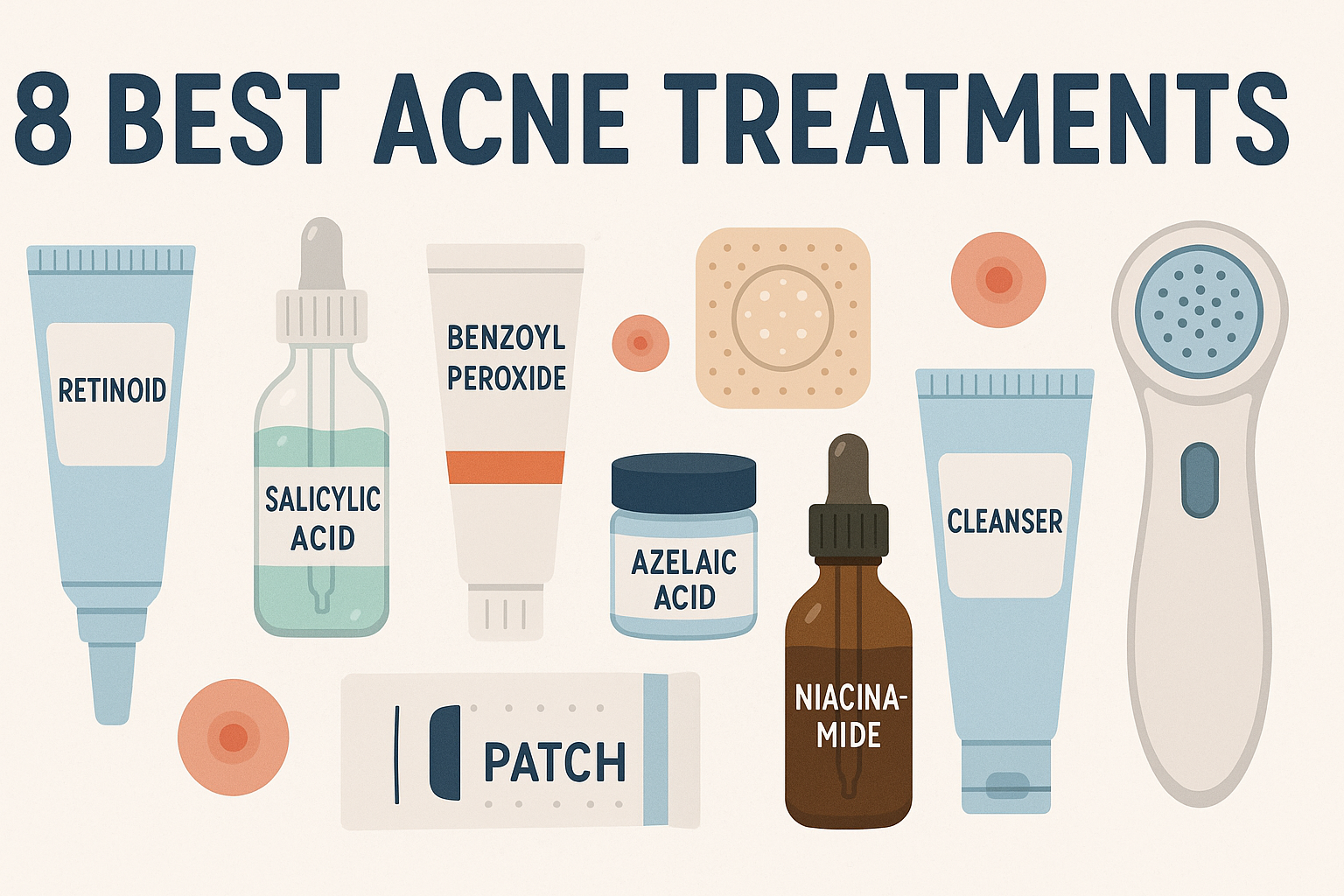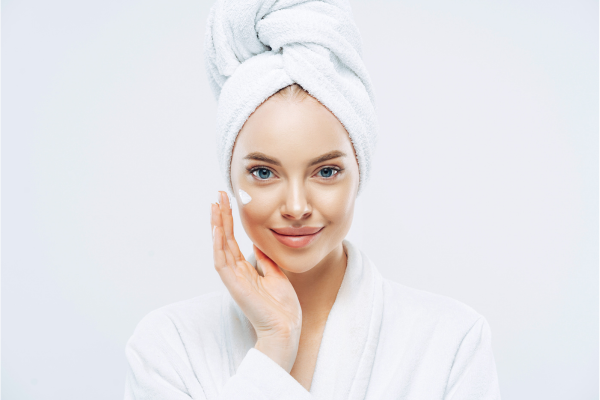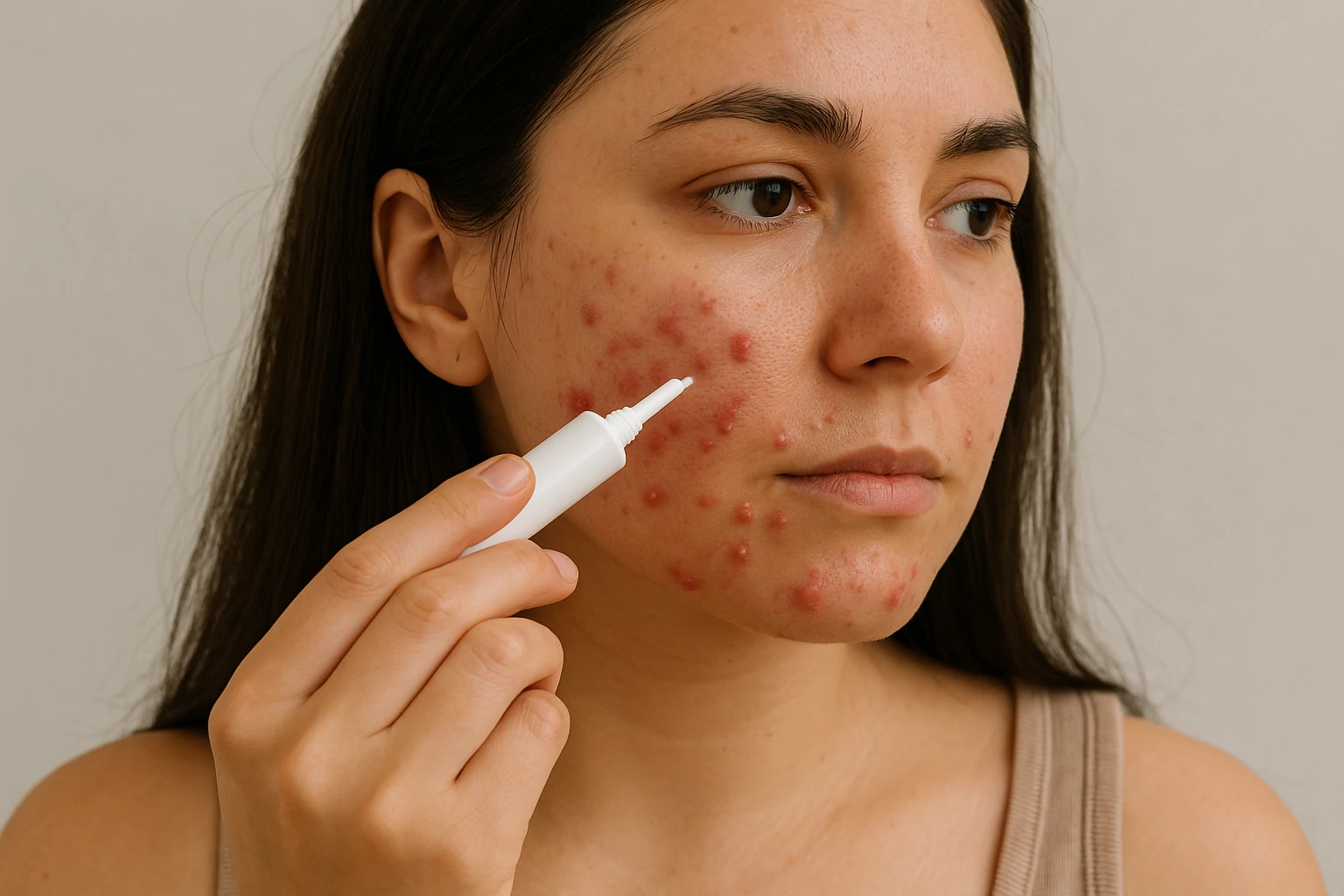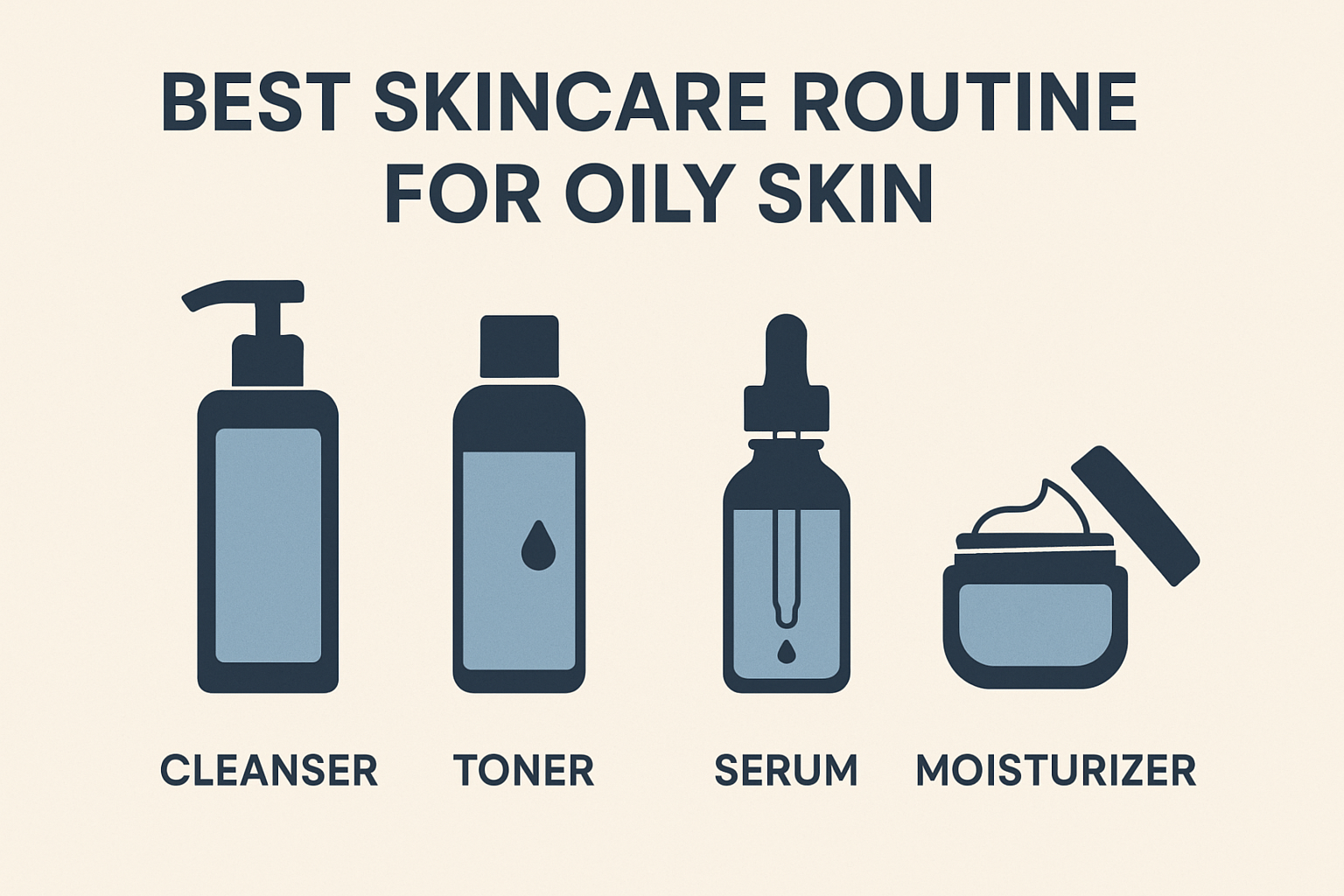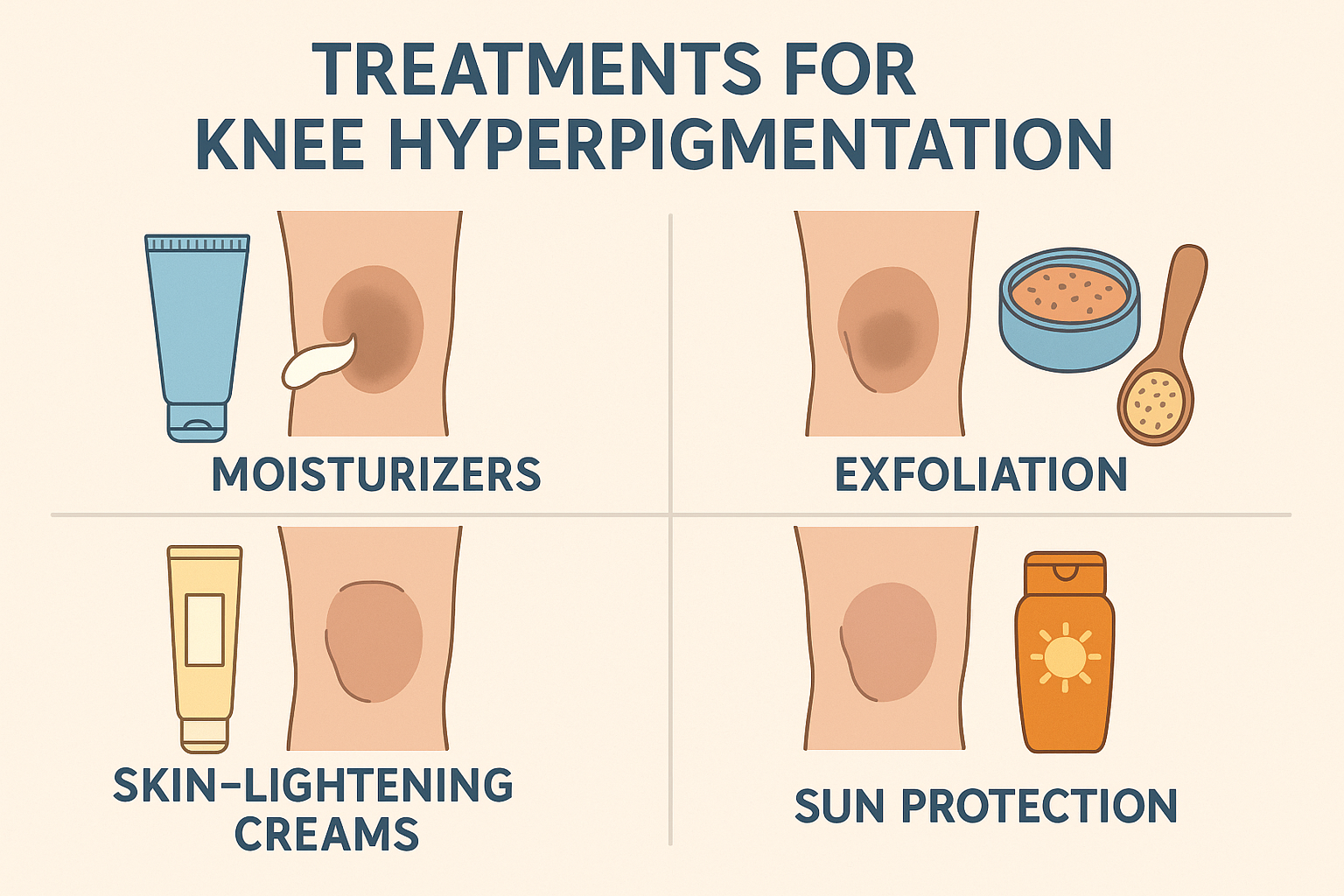Retinol for Sensitive Skin: Complete Guide to Avoiding Irritation

Retinol for Sensitive Skin has become an important topic in modern dermatology, as retinol is considered a leading active ingredient in skincare. A derivative of vitamin A and part of the retinoid family, retinol is widely known for its ability to stimulate cell turnover, boost collagen production, and improve various skin concerns such as fine lines, hyperpigmentation, uneven texture, and acne. Because of these benefits, retinol is often regarded as the gold standard in anti-aging and general skincare treatments.
However, using retinol comes with challenges, especially for those with sensitive skin. Common side effects such as redness, dryness, peeling, and itching—often referred to as the “retinol uglies”—can be a significant barrier, causing many people to hesitate before starting retinol. These reactions occur due to retinol’s mechanism of accelerating skin cell renewal, which requires an adjustment period.
That said, with the right approach, retinol can still be suitable for sensitive skin. Choosing gentler formulations, starting with low concentrations, gradually increasing application frequency, and supporting the skin barrier with moisturisers are key strategies. Board-certified dermatologists like Dr Teresa Song and Dr Ranella Hirsch highlight the importance of personalising retinol use to match individual skin needs, ensuring maximum benefits without worsening skin sensitivity.
What Is Sensitive Skin?
According to Dr Ranella Hirsch, sensitive skin is defined as a condition where the skin reacts excessively to stimuli that typically do not cause issues in others. These reactions may include stinging, burning, or itching sensations and often indicate a disruption in the skin’s protective barrier. Dr Teresa Song adds that dry skin is more prone to sensitivity due to a weaker barrier, which allows irritants to penetrate more easily.
Genetics also play a role—some individuals are simply more predisposed to having sensitive skin. However, skin sensitivity can also be temporary or situational, influenced by environmental factors, seasonal changes, stress, or shifts in skincare routines.
Common symptoms of sensitive skin include:
- Redness
- Itching
- Burning sensation
- Dryness
- Flakiness
- Tightness
The causes of sensitive skin are diverse, and almost any internal or external factor can act as a trigger. Still, according to Dr Song, several common culprits are frequently associated with reactions in sensitive skin.
Common triggers of sensitive skin:
- Fragrances
- Foaming soaps
- Extreme temperatures (very hot or very cold)
- Stress
- Certain preservatives and active ingredients
- Polluted air
- Illness
Understanding these characteristics and triggers is crucial for designing an appropriate skincare routine—especially for those looking to incorporate active ingredients like retinol safely.
Can You Use Retinol If You Have Sensitive Skin?
Both dermatologists, Dr Teresa Song and Dr Ranella Hirsch, agree that individuals with sensitive skin can still use retinol safely and effectively—provided the product is properly formulated and applied according to dermatological guidance. While retinol is known for its potential to cause irritation, even in naturally resilient skin, it remains highly sought-after due to its broad therapeutic benefits in skincare.
Scientifically, retinol works by stimulating epidermal cell turnover and boosting collagen synthesis in the dermis. This leads to improvements in skin texture, a reduction in fine lines and wrinkles, fading of hyperpigmentation, and a decrease in sebum production, which helps manage acne and post-acne marks. However, its powerful mechanism can also lead to side effects such as erythema (redness), xerosis (dry skin), desquamation (peeling), and a burning or stinging sensation—effects that are often more intense in sensitive skin.
For this reason, using retinol on sensitive skin requires a gradual, well-structured approach: starting with a low concentration, limiting application to once or twice a week, and applying only to completely dry skin after cleansing. In addition, using an occlusive moisturiser and supporting products that strengthen the skin barrier is highly recommended. With the right strategy, retinol can still be a valuable part of a sensitive skincare routine—without causing excessive irritation.
How to Select the Right Retinol for Your Sensitive Skin Type
For individuals with sensitive skin, choosing the right retinol product is crucial to minimise the risk of irritation. The basic principle is to opt for low-concentration retinol in a gentle formulation. Over-the-counter (OTC) retinol products typically contain lower levels of active ingredients compared to prescription-strength retinoids like tretinoin, which tend to be more irritating due to their potency.
According to Dr Teresa Song, it’s important to understand that OTC retinol concentration labels are not always standardised across brands. For instance, a product labelled “0.3% retinol” may deliver different effects from another with the same percentage, depending on the type of retinoid used, the delivery system, and the overall formulation. For sensitive skin, it’s recommended to choose retinol in the form of a moisturising cream or mild emulsion, as these can help retain skin hydration and support the skin barrier, reducing the likelihood of irritation.
Dr Ranella Hirsch also recommends more tolerable forms of retinoids for sensitive skin, such as granactive retinoid (hydroxypinacolone retinoate). This is a stable and effective form of retinoid that tends to cause fewer side effects compared to conventional retinol. With the right approach, even the most reactive skin types can benefit from retinoids without compromising comfort or safety.
Best Skincare Products for Sensitive Skin: Expert Recommendations
SkinBetter Science AlphaRet Overnight Cream

Dr Teresa Song recommends this retinoid cream because its formula is specifically designed to deliver optimal results with minimal—almost no—risk of irritation. It contains a low concentration of retinoid, a vitamin A derivative with biological activity on the skin, yet remains gentle enough for sensitive skin types.
A key advantage of this product lies in its combination of retinoid and lactic acid, a type of alpha-hydroxy acid (AHA) that offers mild exfoliation while also acting as a humectant. Lactic acid helps accelerate cell turnover without causing excessive peeling, and in low doses, it can actually improve the skin’s tolerance to retinoids.
In addition, the formula is enriched with a range of moisturising and soothing agents:
Ceramides, which play a vital role in strengthening the skin barrier and preventing transepidermal water loss (TEWL).
Bisabolol, a calming compound derived from chamomile, known for its anti-inflammatory properties.
Squalane, an emollient that mimics the skin’s natural lipids, helping to maintain hydration and elasticity.
Green tea extract, rich in powerful antioxidants like epigallocatechin gallate (EGCG), which help combat free radicals and soothe inflammation.
This synergy between active ingredients and supportive elements allows the product to effectively improve skin condition without compromising comfort or tolerance, making it especially suitable for sensitive skin.
RoC Retinol Correxion Line-Smoothing Max Hydration Cream

Two dermatologists—Dr Teresa Song and Dr Ranella Hirsch—recommend RoC’s retinol products for their effective formulation, wide availability (both online and in physical stores), and overall suitability for various skin types, including sensitive skin. These products strike a balanced approach between efficacy and tolerability.
One of RoC’s standout creams features a combination of retinol and hyaluronic acid, two active ingredients that work synergistically. Retinol, a vitamin A derivative, helps boost skin cell turnover, improve texture, reduce fine lines, and even out skin tone. However, due to its potential to cause irritation, it requires a formula that supports skin hydration.
That’s where hyaluronic acid plays a key role. As a natural humectant, it can attract and retain up to 1,000 times its weight in water, helping to maintain skin hydration throughout retinol use. This helps prevent common side effects such as dryness, redness, and flaking.
This combination offers a dual benefit: firmer, smoother skin thanks to retinol, and plumper, healthier-looking skin due to the deep hydration provided by hyaluronic acid. This makes RoC’s product a strong contender for anti-aging skincare that remains gentle enough for sensitive skin.
Murad Retinol Youth Renewal Night Cream

This retinol-based night cream is formulated to deliver multi-functional benefits, particularly by supporting the skin’s natural regeneration process during the night. The retinol content helps increase epidermal cell turnover, gradually brighten the complexion, and reduce the appearance of fine lines by stimulating collagen production in the dermis.
Beyond its anti-aging effects, the cream also includes nourishing and barrier-supporting agents, which help maintain the integrity of the skin barrier—a vital protective layer that retains moisture and shields the skin from external irritants. Strengthening this barrier is key to minimising the risk of irritation often associated with retinol use.
An added bonus is the airless pump packaging design, which offers both practicality and hygiene. This dispensing system allows users to extract the right amount of product without exposing it to air or contaminants from hands, helping to preserve the stability and effectiveness of the active ingredients inside.
Olay Regenerist Retinol24 + Peptide Night Moisturizer

The combination of vitamin B3 (niacinamide) and retinol in this formula works synergistically to enhance overall skin quality. Niacinamide helps strengthen the skin barrier, boost hydration, and reduce hyperpigmentation, while retinol promotes cell turnover, evens out skin texture, and brightens the complexion.
Its fragrance-free formulation makes it especially well-suited for sensitive skin, as it lowers the risk of irritation or allergic reactions. This product offers intensive care while maintaining a high level of comfort and skin tolerance, making it a safe and effective option for individuals with reactive or easily irritated skin.
Peace Out Retinol Face Stick

This treatment balm is formulated with encapsulated retinol, a delivery technology that allows the active ingredient to be released gradually into the skin. This method helps minimise irritation while still enabling retinol to effectively stimulate cell regeneration and collagen production without overwhelming the skin.
In addition, the balm is enriched with soothing ingredients that help calm redness and support the skin barrier’s balance. The combination of retinol’s efficacy and the calming properties of the formula makes it ideal for nighttime use, especially for sensitive skin that needs visible results without unwanted reactions.
Versed Press Start Gentle Retinol Serum

This cream-based retinol serum is specially designed for sensitive skin and first-time retinol users. It contains microencapsulated retinol, which allows the active ingredient to be released slowly into the skin, helping to minimise irritation while maintaining its effectiveness in stimulating cell renewal, improving skin texture, and reducing signs of ageing.
The formula is also enriched with anti-inflammatory agents, such as botanical extracts or soothing peptides, which help calm the skin and reduce redness and irritation—common side effects during the initial phase of retinol use. The result is smoother, brighter skin with improved tolerability and comfort, making it a gentle yet effective option for those starting their retinol journey.
Adding Retinol to Your Skincare When You Have Sensitive Skin
According to Dr Ranella Hirsch, the success of using retinol on sensitive skin largely depends on the application method and frequency of use. Retinol, a highly active derivative of vitamin A, can easily cause irritation—especially on skin with a compromised barrier, like sensitive skin. This makes a careful introduction strategy essential.
The first key step is applying retinol only at night, as it increases the skin’s photosensitivity, meaning it becomes more vulnerable to UV damage. Night-time use helps mitigate this risk.
Both Dr Hirsch and Dr Teresa Song agree that retinol should be used sparingly at first. Dr Song recommends starting with one to two times per week, gradually increasing as the skin builds tolerance. Dr Hirsch suggests the every third night method—two nights off, followed by one night on. While slightly different, both approaches aim to help the skin adapt slowly and reduce the likelihood of irritation.
During the initial phase, it’s strongly recommended to avoid other active ingredients like AHAs, BHAs, or vitamin C in your night routine—even on non-retinol nights—to prevent cumulative irritation.
Experts also recommend the retinol sandwich method: layer retinol between two applications of moisturiser. After cleansing the face with a gentle, non-foaming cleanser, apply a thin layer of moisturiser, then a pea-sized amount of retinol, followed by another layer of moisturiser. On nights without retinol, simply cleanse and moisturise.
Most importantly, daily use of sunscreen in the morning is non-negotiable while using retinol, as it helps protect the newly sensitised skin from sun damage.
Best Retinol Alternatives That Boost Collagen Without Irritation
While retinol remains the gold standard in anti-aging skincare, several other active ingredients can deliver similar benefits with a lower risk of irritation—making them particularly suitable for sensitive skin.
One of the most promising alternatives is bakuchiol, a natural compound derived from the Psoralea corylifolia plant. According to Dr Teresa Song, bakuchiol can stimulate collagen synthesis, improve skin elasticity, and enhance skin texture—all without causing irritation or photosensitivity like retinol. This makes bakuchiol an ideal plant-based alternative for individuals who are unable to tolerate retinoids.
Other effective options include alpha-hydroxy acids (AHAs) such as glycolic acid and lactic acid, which gently exfoliate the skin by dissolving dead skin cells. This chemical exfoliation encourages cell turnover and can gradually boost collagen production, resulting in brighter, smoother skin.
Additionally, palmitoyl tripeptides, part of the synthetic peptide family, act as biological messengers that signal the skin to increase its collagen and elastin production. These peptides are known to reduce the appearance of fine lines and improve skin firmness, while remaining gentle and non-irritating—making them especially suitable for sensitive complexions.
Conclusion
According to dermatology experts, using retinol on sensitive skin is entirely possible, as long as it’s approached with care and precision. The key lies in choosing the right formulation—ideally a low-concentration retinol in a moisturising base such as a cream or balm, combined with soothing ingredients like ceramides, niacinamide, or squalane to help reduce the risk of irritation.
Equally important is using the correct dosage—about a pea-sized amount for the entire face—and introducing it gradually into the skincare routine, starting with once or twice a week and increasing slowly based on skin tolerance.
The rest of the skincare routine should be kept minimal and focus on hydration. Avoiding other active ingredients such as AHAs, BHAs, or vitamin C in the initial phase of retinol use is strongly recommended to prevent over-exfoliation and disruption of the skin barrier.
If signs of significant irritation or persistent discomfort arise, consulting a board-certified dermatologist is highly advised. A professional assessment can help tailor the product choice and usage frequency to suit individual skin needs.




 Acne
Acne Anti-Aging
Anti-Aging Business
Business Digital Marketing
Digital Marketing Economics
Economics Exfoliation
Exfoliation Hair Removal
Hair Removal Movies
Movies Personal Finance
Personal Finance Websites
Websites
